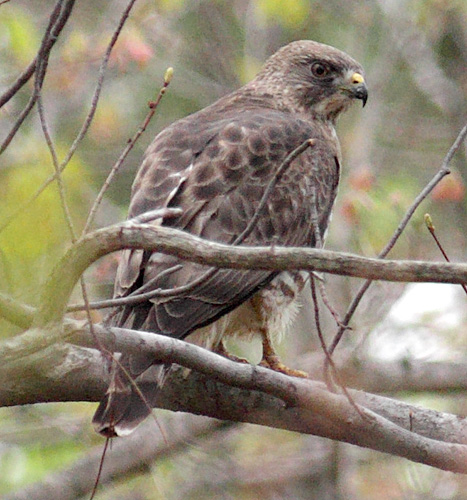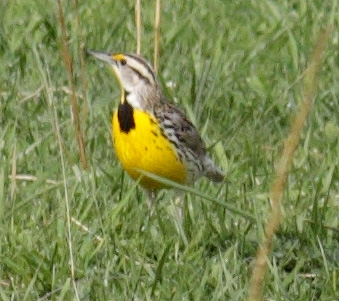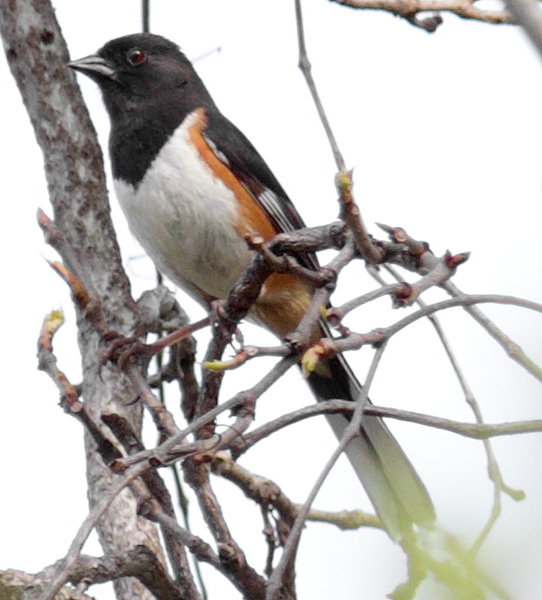
Juvenile Red-sholdered Hawk
I was curious to see what might be on the trail after Saturday's storms. The Rockfish Valley had 5 inches of rain, most of it in the afternoon, and there was 7 inches of rain on the mountain that all came down into the valley, causing a foot of water to rage through all the possible drainage routes. All of the lakes, ponds, rivers, and streams were out of their banks, many roads were closed, and two people drowned in nearby Waynesboro. I am sure that the Canada Goose nests near the ponds and lakes were all washed away, and many burrowing animals must have drowned.
I thought that birding might be good on the trail this morning, as I stopped on Monocan Drive here in Stoney Creek on the way to photograph a juvenile Red-sholdered Hawk - thought it might be a good omen for my morning adventure.

Juvenile Red-sholdered Hawk
There was a lot of damage to the trail. The Rockfish River on the downstream trail from the picnic table to 2/3 of the way to the Glenthorne Loop trail was almost twice as wide, with the previous bank and riparian vegetation washed away. The path along the trail there was now at the edge of the bank. DO NOT WALK CLOSE TO THE BANK IN THIS AREA - the soil under the edge of the bank is gone, and the edge of the new bank may collapse under your weight. The large riparian vegetation along the river just before the picnic table is all dead - but this should come back fairly well. I walked the entire Glenthorne Loop and the only major damage that I saw was to the Reids Creek bank just to the north of the first wooden bridge.
The upstream trail did not seem to be damaged as much as the downstream trail, but the worst area was by the remaining park bench - the other park bench is gone. There was considerable loss of riparian habitat on these trails, but it will all eventually come back. Perhaps some volunteer work will be needed to speed up the process.
I still managed to see 28 species on the trail this morning, but was disappointed not seeing any warblers, as they are starting to be seen on both sides of the Blue Ridge Mountains.
Song Sparrow
Field Sparrow
White-throated Sparrow
Chipping Sparrow
Eastern Towhee
Eastern Phoebe
Canada Goose
Blue-gray Gnatcatcher
American Crow
Red-winged Blackbird
Rock Pigeon
Carolina Chickadee
Eastern Bluebird
American Goldfinch
Northern Cardinal
Eastern Meadowlark
Tree Swallow
Barn Swallow
Northern Mockingbird
Unidentified Hawk - probably a Red-shouldered
Flicker
Red-bellied Woodpecker
Turkey Vulture
Blue Jay
Carolina Wren
American Robin
Tufted Titmouse
Cedar Waxwing

Eastern Meadowlark

Eastern Towhee